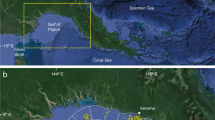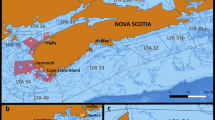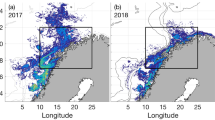Abstract
REPORTS were received during the early part of August 1960 that considerable numbers of Lough Neagh pollan were dying. An inspection revealed that the north-eastern shore in the Antrim Bay area was littered with fish (approximately one for each yard of beach) and from their condition it was evident that the mortality had been occurring for some time, possibly 2–3 weeks. It has since been learned that dying and dead fish continued to be noted until the end of August at least. Although pollen was the only species noted at the time of the inspection, commercial fishermen on the lake have since stated that small numbers of bream, Abramis bramae L., and lake trout, Salmo trutta L., were also affected.
This is a preview of subscription content, access via your institution
Access options
Subscribe to this journal
Receive 51 print issues and online access
$199.00 per year
only $3.90 per issue
Buy this article
- Purchase on Springer Link
- Instant access to full article PDF
Prices may be subject to local taxes which are calculated during checkout
Similar content being viewed by others
Author information
Authors and Affiliations
Rights and permissions
About this article
Cite this article
VICKERS, K., McCLEAN, R. Furunculosis in Lough Neagh Pollan Coregonus pollan, Thompson. Nature 191, 930–931 (1961). https://doi.org/10.1038/191930a0
Issue Date:
DOI: https://doi.org/10.1038/191930a0
This article is cited by
-
Taxonomy of the Fish Furunculosis Organism
Nature (1962)
Comments
By submitting a comment you agree to abide by our Terms and Community Guidelines. If you find something abusive or that does not comply with our terms or guidelines please flag it as inappropriate.



